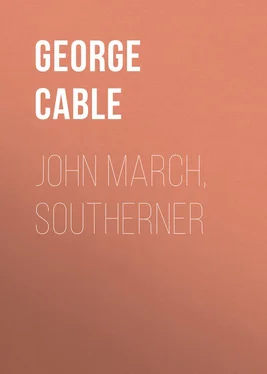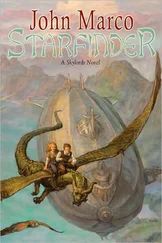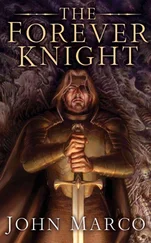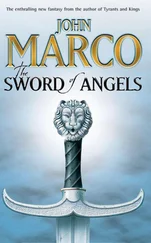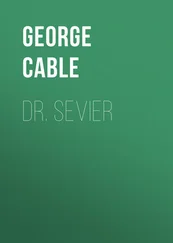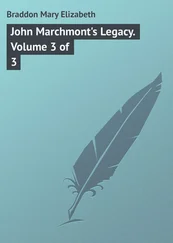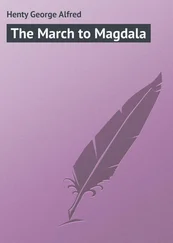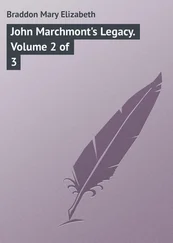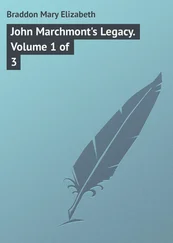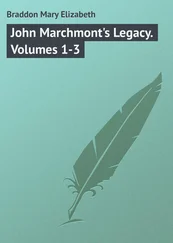George Cable - John March, Southerner
Здесь есть возможность читать онлайн «George Cable - John March, Southerner» — ознакомительный отрывок электронной книги совершенно бесплатно, а после прочтения отрывка купить полную версию. В некоторых случаях можно слушать аудио, скачать через торрент в формате fb2 и присутствует краткое содержание. Жанр: foreign_antique, foreign_prose, на английском языке. Описание произведения, (предисловие) а так же отзывы посетителей доступны на портале библиотеки ЛибКат.
- Название:John March, Southerner
- Автор:
- Жанр:
- Год:неизвестен
- ISBN:нет данных
- Рейтинг книги:3 / 5. Голосов: 1
-
Избранное:Добавить в избранное
- Отзывы:
-
Ваша оценка:
- 60
- 1
- 2
- 3
- 4
- 5
John March, Southerner: краткое содержание, описание и аннотация
Предлагаем к чтению аннотацию, описание, краткое содержание или предисловие (зависит от того, что написал сам автор книги «John March, Southerner»). Если вы не нашли необходимую информацию о книге — напишите в комментариях, мы постараемся отыскать её.
John March, Southerner — читать онлайн ознакомительный отрывок
Ниже представлен текст книги, разбитый по страницам. Система сохранения места последней прочитанной страницы, позволяет с удобством читать онлайн бесплатно книгу «John March, Southerner», без необходимости каждый раз заново искать на чём Вы остановились. Поставьте закладку, и сможете в любой момент перейти на страницу, на которой закончили чтение.
Интервал:
Закладка:
Far in the night the husband awoke. He could think better now, in the almost perfect stillness. There were faint signs of one or two servants being astir, but in the old South that was always so. He pondered again upon the present and the future of the unhappy race upon whom freedom had come as a wild freshet. Thousands must sink, thousands starve, for all were drunk with its cruel delusions. Yea, on this deluge the whole Southern social world, with its two distinct divisions – the shining upper – the dark nether – was reeling and careening, threatening, each moment, to turn once and forever wrong side up, a hope-forsaken wreck. To avert this, to hold society on its keel, must be the first and constant duty of whoever saw, as he did, the fearful peril. So, then, this that he had done – and prayed that he might never have to do again – was, underneath all its outward hideousness, a more than right, a generous, deed. For a man who, taking all the new risks, still taught these poor, base, dangerous creatures to keep the only place they could keep with safety to themselves or their superiors, was to them the only truly merciful man.
He drifted into revery. Thoughts came so out of harmony with this line of reasoning that he could only dismiss them as vagaries. Was sleep returning? No, he laid wide awake, frowning with the pain of his wound. Yet he must have drowsed at last, for when suddenly he saw his wife standing, draped in some dark wrapping, hearkening at one of the open windows, the moon was sinking.
He sat up and heard faintly, far afield, the voices of Leviticus, Virginia, Willis, Trudie, and Johanna, singing one of the wild, absurd, and yet passionately significant hymns of the Negro Christian worship. Distance drowned the words, but an earlier familiarity supplied them to the grossly syncopated measures of the tune which, soft and clear, stole in at the open window:
"Rise in dat mawnin', an' rise in dat mawnin',
Rise in dat mawnin', an' fall upon yo' knees.
Bow low, an' a-bow low, an' a-bow low a little bit longah,
Bow low, an' a-bow low; sich a conquerin' king!"
The eyes of wife and husband met in a long gaze.
"They're coming this way," he faltered.
She slowly shook her head.
"My love – " But she motioned for silence and said, solemnly:
"They're leaving us."
"They're wrong!" he murmured in grieved indignation.
"Oh, who is right?" she sadly asked.
"They shall not treat us so!" exclaimed he. He would have sprung to his feet, but she turned upon him suddenly, uplifting her hand, and with a ring in her voice that made the walls of the chamber ring back, cried,
"No, no! Let them go! They were mine when they were property, and they are mine now! Let them go!"
The singing ceased. The child in the next room had not stirred. The dumfounded husband sat motionless under pretence of listening. His wife made a despairing gesture. He motioned to hearken a moment more; but no human sound sent a faintest ripple across the breathless air; the earth was as silent as the stars. Still he waited – in vain – they were gone.
The soldier and his wife lay down once more without a word. There was no more need of argument than of accusation. For in those few moments the weight of his calamities had broken through into the under quicksands of his character and revealed them to himself.
VIII.
SEVEN YEARS OF SUNSHINE
Poets and painters make darkness stand for oblivion. But for evil things or sad there is no oblivion like sunshine.
The next day was hot, blue, and fragrant. John rose so late that he had to sit up in front of his breakfast alone. He asked the maid near by if she thought his father would be home soon. She "reckoned so."
"I wish he would be home in a hour," he mused, aloud. "I wish he would be on the mountain road right now."
When he stepped down and started away she crouched before him.
"Whah you bound fuh, ole gen'leman, lookin' so sawt o' funny-sad?"
"I dunno."
"W'at you gwine do, boss?"
"I dunno."
"Well, cayn't you kiss me, Mist' I-dunno?"
He paid the toll and passed out to his play. With an old bayonet fixed on a stick he fell to killing Yankees – colored troops. Pressing them into the woods he charged, yelling, and came out upon the mountain road that led far down to the pike. Here a new impulse took him and he moved down this road to form a junction with his father. For some time the way was comparatively level. By and by he came to heavier timber and deeper and steeper descents. He went ever more and more loiteringly, for his father did not appear. He thought of turning back, yet his longing carried him forward. He was tired, but his mother did not like him to walk long distances when he was tired, so it wouldn't be right to turn back. He decided to wait for his father and ride home.
Meantime he would go to the next turn in the road and look. He looked in vain. And so at the next – the next – the next. He went slowly, for his feet were growing tender. Sometimes he almost caught a butterfly. Sometimes he slew more Yankees. Always he talked to himself with a soft bumbling like a bee's.
But at last he ceased even this and sat down at the edge of the stony road ready to cry. His bosom had indeed begun to heave, when in an instant all was changed. Legs forgot their weariness, the heart its dismay, for just across the road, motionless beside a hollow log, what should he see but a cotton-tail rabbit. As he stealthily reached for his weapon the cotton-tail took two slow hops and went into the log. Charge bayonets! – pat-pat-pat – slam! and the stick rattled in the hole, the deadly iron at one end and the deadly boy at the other.
And yet nothing was impaled. Singular! He got his eyes to the hole and glared in, but although it was full of daylight from a larger hole at the other end, he could see no sign of life. It baffled comprehension. But so did it defy contradiction. There was but one Resource: to play the rabbit was still there and only to be got out by rattling the bayonet every other moment and repeating, in a sepulchral voice, "I – I – I'm gwine to have yo' meat fo' dinneh!"
He had been doing this for some time when all at once his blood froze as another voice, fifteen times as big as his, said, in his very ear —
"I – I – I'm gwine to have yo' meat fo' dinneh."
He dropped half over, speechless, and beheld standing above him, nineteen feet high as well as he could estimate hastily, a Yankee captain mounted and in full uniform. John leaped up, and remembered he was in gray.
"What are you doing here all alone, Shorty?"
"I dunno."
"Who are you? What's your name?"
"I dunno."
The Captain moved as if to draw his revolver, but brought forth instead a large yellow apple. Then did John confess who he was and why there. The Captain did as much on his part.
He had risen with the morning star to do an errand beyond Widewood, and was now getting back to Suez. This very dawn he had made Judge March's acquaintance beside his broken wagon, and had seen him ride toward Suez to begin again the repair of his disasters. Would the small Confederate like to ride behind him?
Very quickly John gave an arm and was struggling up behind the saddle. The Captain touched the child's back.
"Owch!"
"Why, what's the matter? Did I hurt you?"
"No, sir."
The horse took his new burden unkindly, plunged and danced.
"Afraid?" asked the Captain. John's eyes sparkled merrily and he shook his head.
"You're a pretty brave boy, aren't you?" said the stranger. But John shook his head again.
"I'll bet you are, and a tol'able good boy, too, aren't you?"
"No, sir, I'm not a good boy, I'm bad. I'm a very bad boy, indeed."
The horseman laughed. "I don't mistrust but you're good enough."
Читать дальшеИнтервал:
Закладка:
Похожие книги на «John March, Southerner»
Представляем Вашему вниманию похожие книги на «John March, Southerner» списком для выбора. Мы отобрали схожую по названию и смыслу литературу в надежде предоставить читателям больше вариантов отыскать новые, интересные, ещё непрочитанные произведения.
Обсуждение, отзывы о книге «John March, Southerner» и просто собственные мнения читателей. Оставьте ваши комментарии, напишите, что Вы думаете о произведении, его смысле или главных героях. Укажите что конкретно понравилось, а что нет, и почему Вы так считаете.
